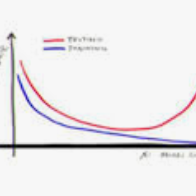We present the problem of inverse constraint learning (ICL), which recovers constraints from demonstrations to autonomously reproduce constrained skills in new scenarios. However, ICL suffers from an ill-posed nature, leading to inaccurate inference of constraints from demonstrations. To figure it out, we introduce a transferable constraint learning (TCL) algorithm that jointly infers a task-oriented reward and a task-agnostic constraint, enabling the generalization of learned skills. Our method TCL additively decomposes the overall reward into a task reward and its residual as soft constraints, maximizing policy divergence between task- and constraint-oriented policies to obtain a transferable constraint. Evaluating our method and four baselines in three simulated environments, we show TCL outperforms state-of-the-art IRL and ICL algorithms, achieving up to a $72\%$ higher task-success rates with accurate decomposition compared to the next best approach in novel scenarios. Further, we demonstrate the robustness of TCL on a real-world robotic tray-carrying task.
翻译:暂无翻译



